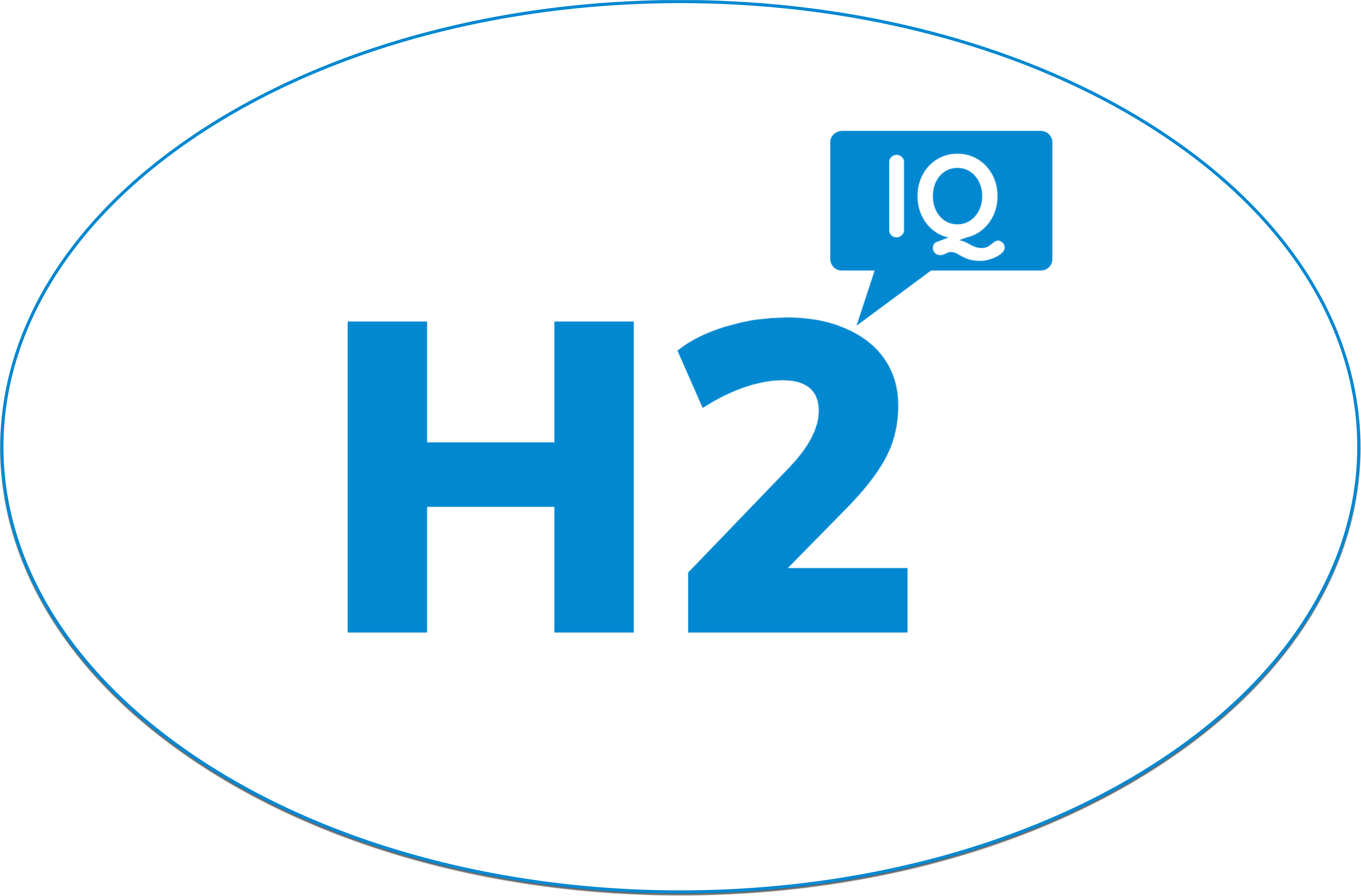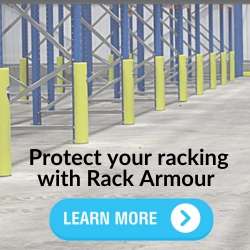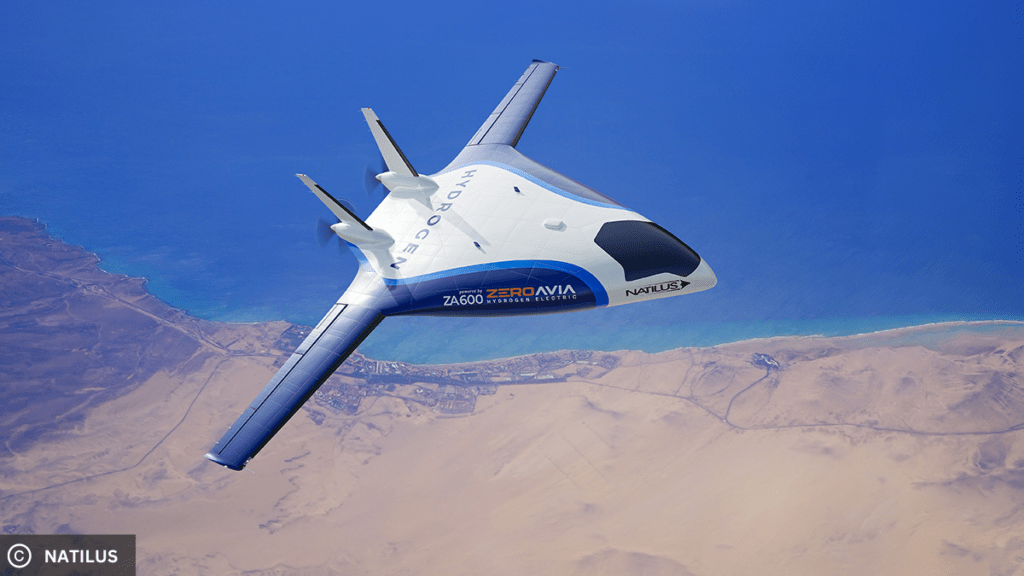
SAN DIEGO and HOLLISTER, Calif., /PRNewswire/ — Natilus, a leading innovator in designing and developing new autonomous blended-wing body (BWB) cargo aircraft, and ZeroAvia, the leader in zero-emission commercial aviation, have announced a strategic partnership to jointly develop hydrogen-electric engines for the Natilus Kona cargo aircraft. ZeroAvia’s ZA600 will be the sole hydrogen-electric propulsion source offered for the novel Kona short-haul feeder UAV, with the partnership focused on delivering zero-emission and lower cost operations.
The Natilus Kona, with its revolutionary BWB design, offers increased volume for hydrogen storage, potentially transforming the air cargo delivery industry to one with low-cost, low carbon emissions, while also extending flight range. The partnership with ZeroAvia will leverage their expertise in hydrogen-electric powertrain technology with Natilus’ unique design to create a scalable, long-range, and zero-emission air cargo delivery solution for the entire industry.
Natilus recently validated the performance of the BWB design with flight testing of a quarter-scale Kona prototype aircraft, following three years of extensive wind-tunnel testing, while ZeroAvia has now conducted eight test flights of its prototype ZA600, 600kW engine in a 19-seat testbed aircraft.
Aleksey Matyushev, Co-founder and CEO of Natilus, said: “Natilus has a long-term commitment to being a responsible steward of our environment, instituting practices that can protect the environment through continual improvements to save fuel and water, reduce waste, air emissions, noise, and material consumption. The Natilus-ZeroAvia partnership goes further, bringing the talents and innovations of the two companies together to deliver much needed innovation in the air cargo delivery industry and multiple solutions for our customers.”
Val Miftakhov, Founder and CEO of ZeroAvia, said: “Given Natilus’ impressive order book and corresponding technology development, working together on integrating the ZA600 as a line-fit engine for Kona can multiply the emissions and costs benefits that are already interesting cargo operators. We all depend on air cargo operators, and some communities depend on them absolutely, so improving the economics and environmental impacts of these operations while increasing service levels is a massive opportunity.”
ZeroAvia has demonstrated a prototype of the ZA600 with world-first flight testing of a retrofitted 19-seat aircraft in flight. The company has twice held the record for demonstrating the largest hydrogen fuel cell aircraft and has struck several important agreements with airframe OEMs relevant to ZA600 – including Textron Aviation, manufacturer of the Cessna Caravan, and private aircraft manufacturer Otto Aviation.
Natilus currently has more than $6.8 billion in order commitments, and 460+ aircraft in pre-orders, from companies including major airlines and integrators: Ameriflight, Volatus Aerospace, Flexport, Astral, Aurora International, and Dymond. The company is now working on construction of a full-scale Kona technology demonstrator, which will have a wingspan of 85 feet (26 meters).
ZeroAvia is a leader in zero-emission aviation, focused on hydrogen-electric propulsion as the key to delivering clean aviation. The company is developing two engine classes initially, targeting a 300-mile range in 9–19 seat aircraft by 2025, and up to 700-mile range in 40–80 seat aircraft by 2027. Based in the US and the UK, ZeroAvia has already secured experimental certificates for three prototype aircraft from the CAA and FAA, passed significant flight test milestones, secured a number of key partnerships with major aircraft OEMs, secured $10B in pre-orders from a number of the major global airlines, and is on track for commercial operations in 2025. For more, please visit ZeroAvia.com, follow @ZeroAvia on Twitter, Instagram, and LinkedIn.
Natilus was co-founded by Aleksey Matyushev and Anatoly Star in 2016 to expand and democratize the air cargo transport industry by designing and manufacturing a new fleet of blended wing body (BWB) autonomous freight aircraft that will increase volume by 60% and lower costs by 60%, as well as help airline customers reach their sustainability goals. Natilus aircraft use existing ground infrastructure and standard air cargo containers, to produce an innovative turnkey solution for customers.
The Natilus family of cargo aircraft includes:
- Kona – 3.8 ton payload (category) short-haul feeder domestic UAV
- Alisio – 60 ton payload medium/long range UAV
- Nordes – 100 ton payload long-range UAV
For more, visit www.natilus.co, follow @NatilusAero on Twitter, and LinkedIn.
Natilus Fact Sheet: https://natilus.co/natilus-faqs/
Media Kit: https://natilus.co/media-kit
IMAGE (above): A composition picture showing what Natilus’ Kona aircraft could look like powered by ZeroAvia engines. (CREDIT: Natilus Media Kit).





